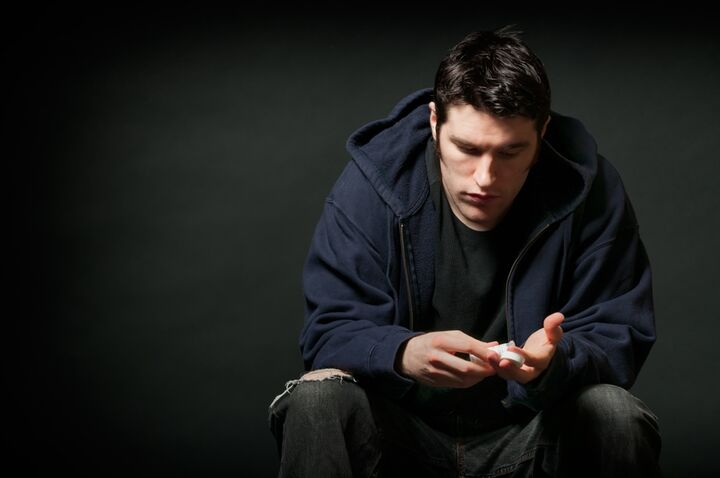Opioids are a group of drugs that includes heroin and prescription pain relievers. Presciption pain relievers can be legally prescribed by a physician, making their use/abuse more challenging. Opioids can be made from the poppy plant or can be manufactured synthetically.
Street Names
Smack SnowballSnowOxy BoyPrecsVike Tranq Blues
BananasChill PillsTrammies
School Busses OC Roxy

Why It Is Dangerous
Heroin and prescription opioids are highly addictive drugs that can cause many physical and psychological issues. Short-term effects can include drowsiness, confusion, euphoria, and slowed breathing. Long-term misuse can lead to infections, addiction, and death. In 2017, the federal government declared a public health emergency around the opioid epidemic and prescription drug abuse. 2023 national data indicates there were 81,083 overdose deaths involving opioids.

Fast Facts
- Nationally, about 5% of youth misuse prescription drugs.
- Heroin is the 2nd most addictive drug with cocaine identified as the most addictive drug.
- Prescription drug abuse is the use of a prescription medicine in a way not intended by the prescriber. Youth can become addicted to prescription drugs after taking them as prescribed for purposes such as sport injuries or wisdom teeth removal.

Mythbuster
There is a direct link between prescription drugs and heroin use/abuse. Studies have shown that 80% of heroin users first misused prescription opioids. Current data from the U.S. Drug Enforcement Administration (DEA) shows that fentanyl, a synthetic opioid that is lethal in very small amounts, is now estimated to be in 60% of all counterfeit pills and is also being cut into the U.S. heroin supply. This can turn any use, even first-time experimentation, into a lethal overdose.
A: Ask the doctor if you can try over the counter medications or for other suggestions to manage their pain before a prescription pain medicine is offered.
A: Youth can access prescription and counterfeit meds from their friends, from unlocked cabinets, and by purchasing them online. It’s a good idea to talk to your kids about not taking any medicines unless prescribed by their doctor.
A: It is defined as taking a medication in a manner or dose other than prescribed, taking someone else’s prescription, or taking medication to get high.
A:
• Make sure your medications are not accessible to your youth by locking them up or safely disposing of unwanted/unused/ expired medications. Most police departments and many larger pharmacies have a medication disposal box available.
• Talk to your family about this issue.
• Model good medication habits.
Resources/Quick Links
- Department of Health & Human Services (DHHS) Hotline
Dial 1-888-535-6136 and press “8” Available 24/7 - SAMSHA (Substance Abuse and Mental Health Services Administration) National Hotline
1-800-662-HELP (4357) Available 24/7 - Online treatment locator
- DEA
- National Institute on Drug Abuse - Opioids
- National Institute on Drug Abuse - Heroin

